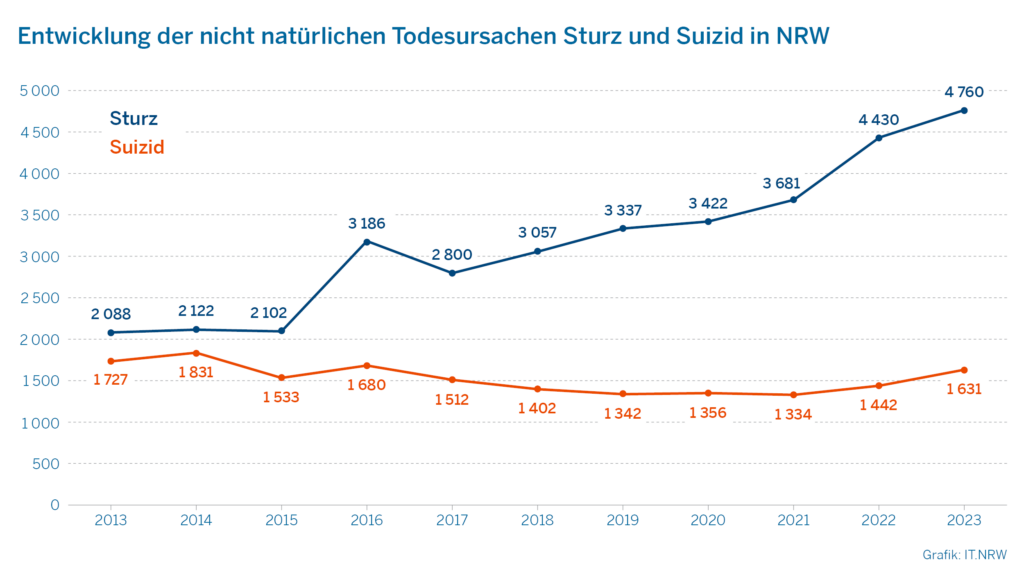Berlin, November 19, 2024 – LINDERA has shown pioneering spirit: As an AI-based medical device manufacturer, we submitted the first-ever application for our mobility analysis app for fall prevention to be included in the directory for Digital Care Applications (DiPA) at the BfArM earlier this year. On November 14, 2024, our application was rejected – despite a successful approval study with more than 150 participants and comprehensive responses to over 140 inquiries from BfArM. This setback highlights a fundamental issue: Care requires its own evaluation standards.
The rejection underscores once again: the care sector cannot be assessed using criteria derived from pharmaceutical logic. A focus solely on scientific evidence without integrating caregiving expertise leaves no room for the realities of daily care practices. In caregiving, unavoidable influencing factors exist that cannot be fully accounted for in scientific study designs. At the same time, the urgency to find innovative solutions for caregiving remains unchanged – especially since the number of fatal falls at home has doubled over the past decade, according to the Statistical Office of North Rhine-Westphalia.

The Details Behind the Rejection: Regulatory Demands vs. Care Practice
- Care as a Multifactorial Reality: BfArM criticized the lack of control over non-standardized and complex factors such as fall counseling or the existing caregiving situation. These are, however, legally mandated and part of every caregiving scenario – aspects beyond the influence of DiPA developers. Nevertheless, our results demonstrate a significant reduction in individual fall risks.
- Unrealistic Study Design Requirements: The demand for a standardized, controlled study environment contradicts the legal provisions of the Eleventh Social Code (§ 14 Abs. 2, § 40a SGB XI), which require evidence-based studies in real-world care settings. In caregiving, which is shaped by varying resources and individual conditions, such designs cannot reflect reality.
- Lack of Inclusion of Care Expertise: Despite positive results, it is questioned whether the app can even qualify as a DiPA. Without caregiving expertise in the evaluation process, the focus remains one-sided and detached from real life. The DiPA guidelines, first published by BfArM on November 4, 2022, even cite a fall prevention app as an example of a DiPA.
- Lack of Consideration for Technological Openness: The legal requirements for DiPA are technologically neutral. However, the administrative interpretation in the LINDERA case failed to account for this, relying instead on a predefined set of criteria.
Legislators and Care Associations Must Act Together
The Care Competence Strengthening Act, which is currently on hold with the end of the current government term, proposed structural solutions, such as a trial period similar to that of DiGAs. But this is not enough:
- Without caregiving expertise in DiPA evaluations, the process remains detached from reality, and the promise of Digital Care Applications to citizens remains unfulfilled.
- There will always be influencing factors, as care is not an isolated system. This is precisely why we need pragmatic evaluation standards that reflect real-world care.
- The focus on evidence alone falls short – particularly as legally mandated services like fall counseling and caregiving provisions have failed to prevent the epidemic of falls.
Falls at Home: A Growing Problem
The numbers speak for themselves: In 2021 alone, over 16,000 fatal falls occurred in home settings in Germany according to statista. Despite fall counseling being a standard service, the numbers continue to rise, underscoring the urgent need to enhance care with digital innovations.
Christine Vogler, Chairwoman of the German Elder Care Council:
“We need to build our own institutions and committees as a profession. If medicine continues to dictate over care, we will lose touch with caregiving realities. The fact that a fall prevention app cannot qualify as a DiPA is incomprehensible to anyone with practical experience.”
LINDERA remains committed to advocating for future-ready care. Our mission endures: to improve the safety and mobility of care-dependent individuals with AI-powered solutions – and to support caregivers and families alike.

